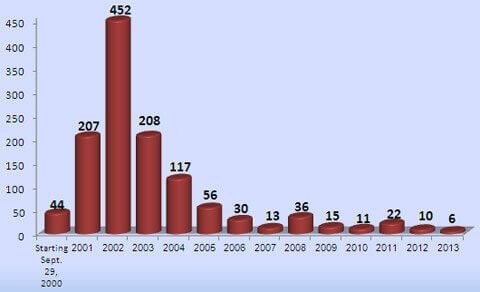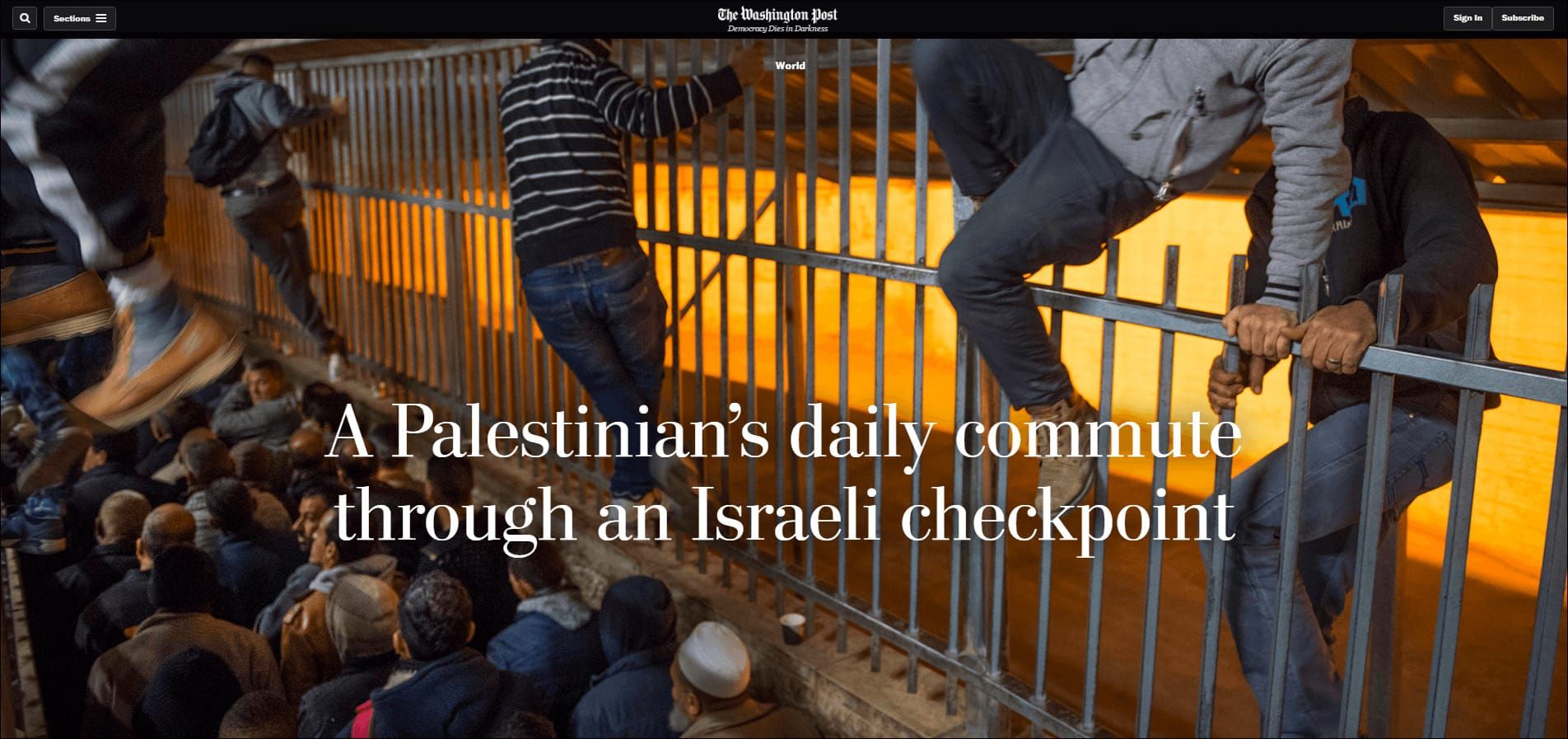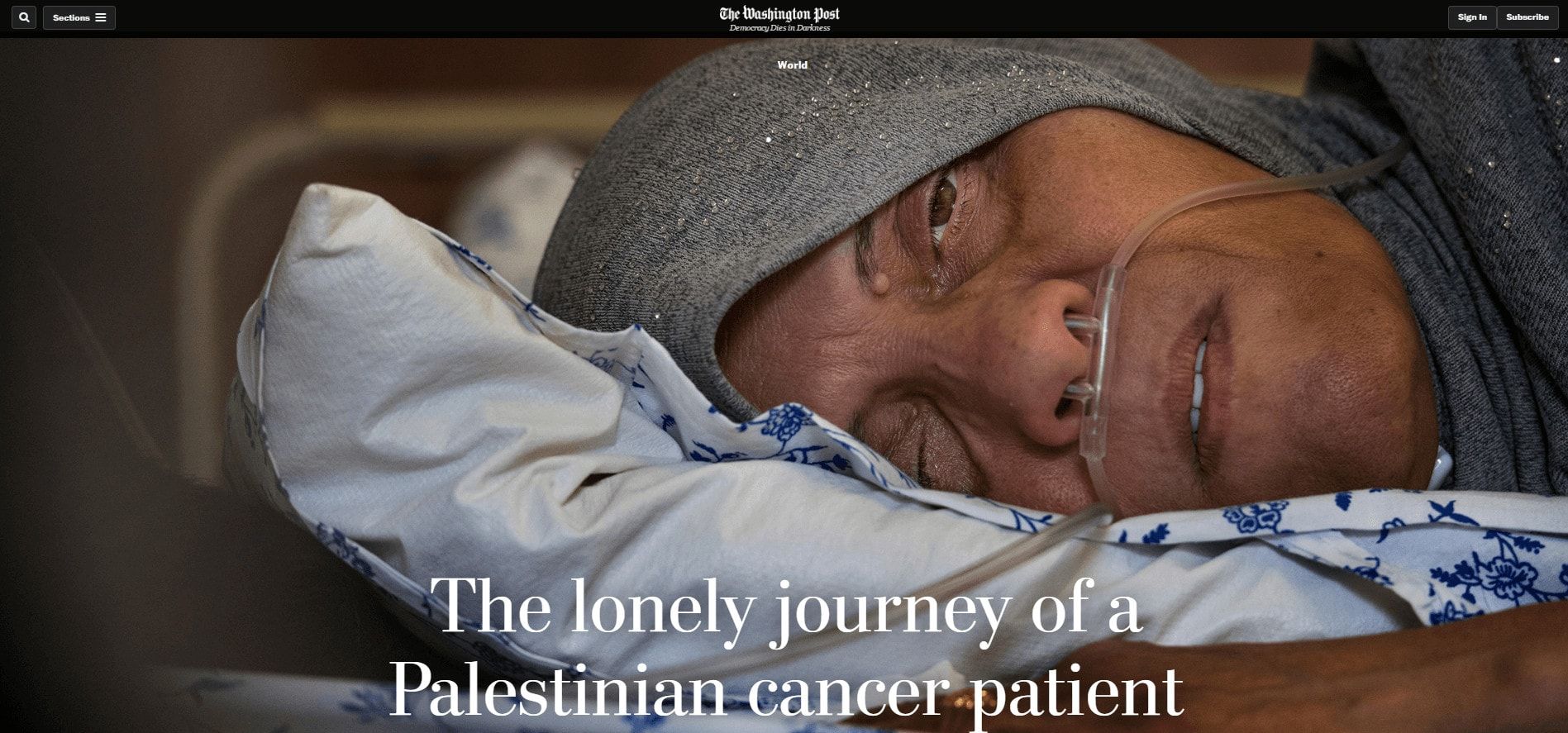Professional ethics require objectivity, balance and context, so that a news reader may fully understand a story and make their own, informed judgments about any moral issues involved.
Which is why it is so disturbing that The Washington Post should suddenly throw its reputation for professionalism out the window when addressing checkpoints: in favor of slamming Israel in a shameless piece of what is essentially Palestinian propaganda, disguised as news.
The Washington Post’s own ethical rules clearly state [emphasis added]:
Washington Post reporters and editors are pledged to approach every assignment with the fairness of open minds and without prior judgment. The search for opposing views must be routine. Comment from persons accused or challenged in stories must be included. The motives of those who press their views upon us must routinely be examined, and it must be recognized that those motives can be noble or ignoble, obvious or ulterior…
…No story is fair if it omits facts of major importance or significance. Fairness includes completeness.
Is it really acceptable for Washington Post journalists to flagrantly violate the rules of their own newspaper?
Slamming Israel
In this article entitled “A Palestinian’s daily commute through an Israeli checkpoint” the Washington Post’s William Booth and Sufian Taha explore the difficulties of commuting from the West Bank into Israel, along with evocatively disturbing photos by Linda Davidson.
The commute involves passing through a checkpoint, which the article portrays as inconvenient, time consuming, and (in the opinion of their Palestinian interviewee) also humiliating. Checkpoints do have a reputation for being not only a hardship for Palestinians, but also a painful dilemma for Israelis.
Yet in what is at best a stunning display of unprofessionalism, or at worst an actual anti-Israel agenda, The Washington Post avoids discussing any degree of Palestinian responsibility for their present situation, and does not include any input at all from Israelis. In doing so, the authors make the checkpoint out to be an act of intentional Israeli malice against Palestinians, rather than the outgrowth of a genuinely difficult and complex situation.
For example, numerous quotes like this one are left entirely unchallenged, including neither context nor an Israeli response:
“I think they do it deliberately, to put us in our place,” said Abu Rafat, 51, a stout barrel of a man with gray hair, a tile worker.
Join the fight for Israel’s fair coverage in the news
Bias: by the numbers
At a whopping 68 column inches long, this article article contains 2,716 words, 12 photographs and one video:
- Number of words from Israeli authorities: zero.
- Number of words explaining why checkpoints are critically needed today (to prevent ongoing Palestinian terrorism): zero.
- Number of words from any Israelis at all: zero.
Furthermore, even though the focus of this article is on how the presence of checkpoints affects Palestinians, it would not be out of the question to bring the same sensitivity to exploring how the absence of checkpoints affects Israelis: perhaps through interviews with, and photographs of, terror victims. For example, such an exploration would be appropriate for a companion article: one that is equally sensitive and evocative but which delves into the reasons for checkpoints and the deadly consequences of removing them.
Checkpoints save lives
Here’s some of the data the Washington Post didn’t share with its readers:
During the so-called “Second Intifada,” Palestinian terrorists killed an average of 200 Israelis per year, and injured thousands.
However, when Israel built a separation barrier and began performing security checks on Palestinians entering Israel, Israeli deaths and injuries decreased by roughly 90%.
In short: checkpoints save lives.

While the article makes passing reference to terrorism in a very general sense (and mostly with a focus on Gaza), it completely neglects the direct connection between Palestinian terror coming out of the West Bank today and the life saving checkpoints that this terror continues to create, the numerous potential attacks that are stopped at checkpoints almost every day, the tremendous risk Israel takes by admitting Palestinians at all, and the enormous cost Israel has paid in the lives of its citizens.
Blaming Israel for fighting cancer
Not to be outdone, the very same team of writers and photographer slammed Israel again, the very next day. This time, their article blamed Israel for providing cancer treatments to Palestinians from the West Bank and Gaza who are in need. Yes, you read that correctly.
Israel often highlights its generosity toward the Palestinians, especially their access to top-flight Israeli hospitals…left unsaid is the fact that Palestinians come to Israel because health care in the West Bank is substandard…Palestinian health officials blame the occupation. [emphasis added]
In discussing “substandard” Palestinian medical care, the Washington Post dedicates exactly zero words to the rampant corruption in Palestinian government: including the 90 million dollars spent by Hamas on building terror tunnels to attack Israelis (as of 2014 – but the figure has increased since then), or the 180 million dollars for terrorist salaries paid every year by the “moderate” Palestinian Authority.
Can you imagine how much cancer treatment the Palestinian government could have provided with those funds? You’ll have to do the imagining yourself, because The Washington Post simply didn’t bother.
Again, The Washington Post makes no mention of dire and life saving Israeli security needs which continue to necessitate checkpoints today, security needs that limit the number of medical entry permits Israel can issue (though it does mention that Israel issued over 190,000 such permits just last year alone – that’s an average of over 500 per day – but for the Washington Post even that is, apparently, not enough).
Again, The Washington Post includes no balancing statement from Israelis.
The Washington Post does not share with its readers that Palestinians have higher life expectancy, lower infant mortality and overall better health that most of their Arab neighbors, due in great part to treatment in Israeli hospitals as well as foreign (including Israeli) investment in Palestinian health systems. We explore the topic in this video:
Most shocking of all, the article entirely avoids the disturbing fact that sometimes Palestinian patients attempt to blow up the very hospitals that are treating them: like the sisters Diana and Nadia Hawila who were caught attempting to smuggle pipe bombs and fertilizer explosives into the clinic where they were being treated for cancer, or Wafa al-Biri, who smuggled a 20 pound bomb in her underwear into the clinic that was treating her for serious burns.
Is it really so unreasonable that Israel would want to carefully check for security risks under such circumstances?
Just plain wrong
It is certainly fair for a journalist to explore the subjective experience of a Palestinian interviewee. It is even fair to investigate the very real burden that some checkpoints create in Palestinian daily life.
Yet hiding context, covering up inconvenient facts, disguising opinions as news, and utterly neglecting to include any balancing statements, clearly violates the professional standards of the Washington Post, as well as basic common sense.
Even worse: absolving Palestinians of all responsibility for a genuinely complex and dangerous situation, while utterly vilifying Israelis, is beyond unprofessional: it is just plain wrong.
Please share your considered comments with The Washington Post by contacting their “Reader’s Representative” at [email protected]




